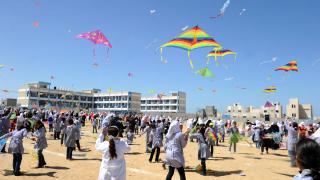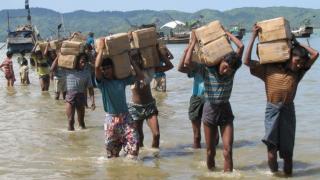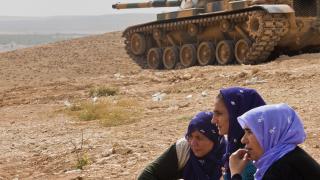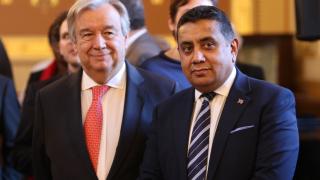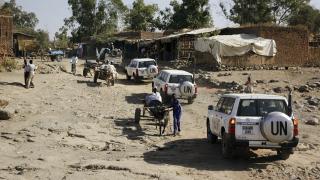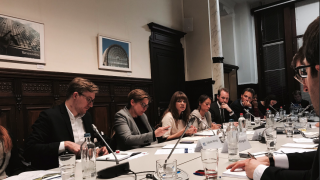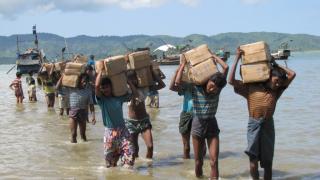
The House of Commons Foreign Affairs Committee today published its report into 'Violence in Rakhine State and the UK’s response'. This is the first report this powerful body of MPs has made since last year's general election.
The report comes as concern continues to mount about the already grave situation in Rakhine State. On 5 December UN High Commissioner for Human Rights Zeid Ra’ad Al Hussein decried acts of “appalling barbarity committed against the Rohingya” and asked "given all of this, can anyone rule out that elements of genocide may be present?"
UNA-UK made a written submission of evidence to the Committee and we were pleased to see the Committee take on board our comments, covering our comparison to the situations in Sri Lanka and Syria and citing our evidence in six further places. The report provides a powerful analysis of the severity of crimes and the need for a far stronger response from the UK which would see the government live up to its "responsibility to protect" Rohingya civilians.
Whether actions are defined as ethnic cleansing, crimes against humanity and genocide has important consequences: such a definition invokes the Responsibility to Protect... The Government’s hesitation would therefore be understandable if the FCO was waiting for the results of its own analysis, but when we asked the Minister what legal assessment had been conducted by the FCO, the Minister said that none had taken place.
UNA-UK's evidence made a number of points.
We drew attention to how the government of Myanmar are hiding behind the language of the war on terror:
Perpetrators of atrocities find it useful to blur the lines between terrorist and combatant, and between combatant and civilian. The international community should resist this conflation, and – while condemning all acts of violence – it should also stand up for the human rights of individuals in all three categories. Atrocities committed against terrorists are still atrocities.
We spoke in some detail about the UN's repsonse to the crisis, making the case that criticism is merited, but that what is needed is a deeper understanding of the structural causes of a faliure to respond, something that the Secretary-General is attempting to address.
The United Nations is well aware of this problem and the Secretary-General is determined to make the structural changes necessary to improve the Organisation’s response ... the UK should strongly support the Secretary-General in this agenda, and should ... support a long-term shift in the work of the Organisation away from service delivery, which is often better accomplished by others, and towards the political and diplomatic work of convening stakeholders and shaping their responses.
And finally we called on the UK Government and the international community to "think more creatively about the atrocity prevention ‘toolkit’" and for the graded application of measures designed to protect civilian life, the essence of the 'responsibility to protect' approach.
UNA-UK joined our partners the International Coalition for the Responsibility to Protect (ICRtoP) and over 100 civil society organisations in signing on to a joint statement calling for stronger action and has also signed a global appeal urging the UN to take urgent steps to address the crisis.
Photo: unloading supplies at an IDP camp near Sittwe. Mathias Eick, EU/ECHO, Rakhine State, Myanmar/Burma, September 2013

